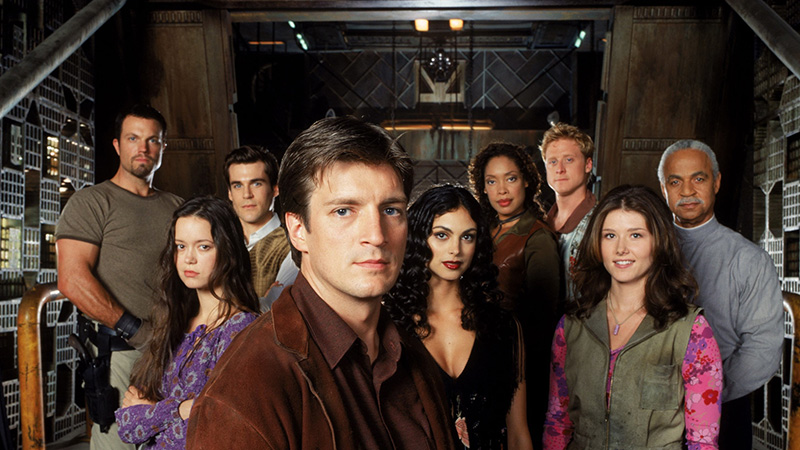
It’s hard to believe it’s been over 20 years since Firefly first aired back in 2002. Though the space western created by Joss Whedon only lasted one season on Fox, it has remained a much-beloved cult classic with a passionate fanbase ever since. Looking back, it’s easy to see why Firefly struck such a chord. Let’s explore what made this short-lived show so special.
What Made Firefly Unique
The uniqueness of “Firefly” was not just in its genre fusion but in how it executed the blend with a deft touch that respected both traditions.
The western elements were not just set dressing; they were integral to the plot and character development.
The characters spoke in a dialect that was a mix of Old West drawls and futuristic jargon, and the moral ambiguity of the frontier was mirrored in the vastness of space.
The show’s setting in 2517, after humanity’s migration to a new star system, was a canvas for exploring themes of survival, freedom, and the human spirit in the face of a vast and indifferent universe.
This combination of space opera and western motifs created a universe that was expansive yet grounded, futuristic yet rustic, and always enthralling.
Compelling Characters

The characters of “Firefly” were not just compelling but deeply human, each with their own flaws, strengths, and personal journeys. The show delved into their pasts and personal demons, making viewers invest in their growth and relationships.
The character of River Tam, for example, was a masterful blend of vulnerability and latent power, and her protective brother Simon’s sacrifices added layers of familial love and conflict.
The show’s ability to make each character’s story resonate with viewers, from the enigmatic Inara to the gentle giant Jayne, was a testament to its character-driven storytelling.
The diversity of the crew, both in background and personality, reflected a future that was both hopeful and complex, where people from all walks of life could find a place among the stars.
Whedon’s Trademark Humor and Wit
Whedon’s humor in “Firefly” was not just about delivering one-liners but also about building a world that was lived-in and relatable.
The humor arose organically from the characters and situations, never feeling forced or out of place. It was a tool that Whedon used to diffuse tension, humanize characters, and build camaraderie among the crew.

The banter between Mal and Wash, or the deadpan quips from Zoe, were not just comedic moments but windows into the soul of the show.
This humor was a counterbalance to the darker themes explored in the series, providing a necessary relief and a reminder that, even in the darkest times, humanity can find reasons to laugh.
A Fulfilling Yet Tragically Short Run
The brevity of “Firefly’s” run is often lamented, but within its short span, the series managed to create a sense of a larger world with a rich history and culture.
The show’s narrative arc touched on political intrigue, personal redemption, and the struggle against a seemingly omnipotent authority.
Each episode was a piece of a larger puzzle, hinting at untold stories and secrets yet to be revealed.
The show’s cancellation left many of these stories untold, which only added to the mystique and allure of the ‘verse Whedon had created.
The narrative density of the series, with its layered storytelling and world-building, made the single season of “Firefly” feel like just the beginning of a much larger saga.
Lasting Legacy
The legacy of “Firefly” extends beyond its original medium. It has inspired a dedicated community of fans, known as “Browncoats,” who have kept the spirit of the show alive through fan fiction, conventions, and charity events.
The show’s impact on popular culture can be seen in the way it has influenced other science fiction works, with its fingerprints visible in everything from video games to literature.
The continued interest in the show has led to academic studies and critical analyses, cementing its place as a subject of serious cultural discourse.
“Firefly” was more than a television show; it was a cultural phenomenon that demonstrated the power of storytelling and the enduring nature of quality content, no matter how brief its initial outing.

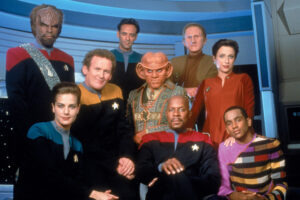



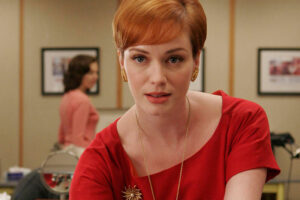


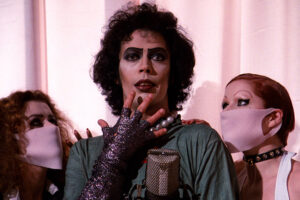
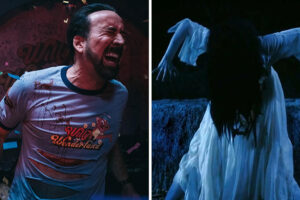
Leave a Reply